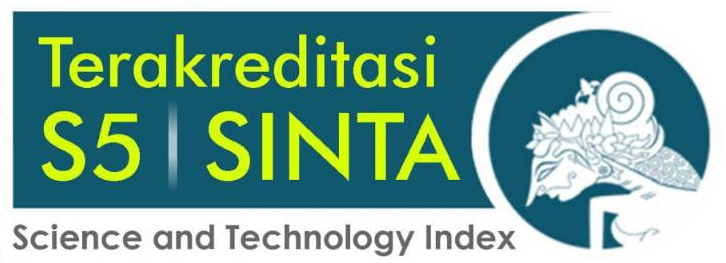Contradiction of Upakara Price and Harmony: The Philosophy of Economic Perspective
Keywords:
upakara, economy, Pancasila, capitalist, socialist, holidayAbstract
Purpose: This study aims to explore the phenomenon of rising prices of upakara facilities ahead of religious holy days that always increase every year. This problem is explored in three perspectives of economic philosophy: (1) pancasila economy, (2) capitalist economy and (3) socialist economy. Finally, this research provides recommendations for solutions to existing problems.
Research methods: This study used a qualitative approach with a narrative review method and a literature study of mass media coverage.
Results and discussion: This study found that the ideal approach is the pancasila and socialist economy. The importance of the government's role as a key policy to suppress price increases, along with collaboration from producers to create people's cooperatives.
Implication: This research provides implications for stakeholders (government) to evaluate the people's market or cheap market policies that are still ineffective in suppressing the price of upakara facilities every holiday. The government can also pay attention to the lower middle class so that they can joyfully celebrate holy days as a noble heritage.
References
Bali Post. (2022). “Jelang Galungan, Harga Bunga Naik Signifikan”. https://www.balipost.com/news/2022/12/29/313904/Jelang-Galungan,Harga-Bunga-Naik...html
Creswell, J. W., & Creswell, J. D. (2017). Research Design: Qualitative, Quantitative, and Mixed Method Approaches. Sage publications.
Detik Bali. (2023). “Jelang Galungan, Harga Cabai di Jembrana Tembus Rp 75 Ribu”. https://www.detik.com/bali/bisnis/d-6493752/jelang-galungan-harga-cabai-di-jembrana-tembus-rp-75-ribu
Fuchs, C. (2021). Everyday Life and Everyday Communication in Coronavirus Capitalism. In Communicating COVID-19 (pp. 17–61). Emerald Publishing Limited. https://doi.org/10.1108/978-1-80117-720-720211003
Gamble, A. (2021). The Free Economy and the Strong State1. In After Brexit and other essays (pp. 91–112). Bristol University Press. https://doi.org/10.51952/9781529217124.ch005
Haryati, H., & Junaidi, H. (2023). Interkoneksi Ekonomi Pancasila Dan Hukum Ekonomi Syariah Era Post Pandemi Covid-19. Jurnal Intelektualita: Keislaman, Sosial Dan Sains, 12(1), 138–144. https://doi.org/10.19109/intelektualita.v12i1.16676
Kilasbali.com. (2021). Harga Babi Naik, Tradisi Mepatung Tak Dilaksanakan. https://www.kilasbali.com/2021/04/08/harga-babi-naik-tradisi-mepatung-tak-dilaksanakan/
Ludji, F., Samiyono, D., & Lattu, I. Y. M. (2020). ““Menyama Braya”: Pondasi Utama Relasi Dialog Agama-agama di Desa Dalung, Bali”. Anthropos: Jurnal Antropologi Sosial Dan Budaya (Journal of Social and Cultural Anthropology), 5(2), 82. https://doi.org/10.24114/antro.v5i2.14213
Marsudi, K. E. R., & Purbasari, V. A. (2022). “Implementasi Sistem Ekonomi Pancasila dalam Kebijakan Pemerintah Indonesia”. Indonesian Journal of Islamic Economics and Finance, 2(1), 27–42. https://doi.org/10.37680/ijief.v2i1.1584
Nuti, D. M. (2023a). Cycles in Socialist Economies (pp. 151–157). https://doi.org/10.1007/978-3-031-12334-4_6
Nuti, D. M. (2023b). Privatisation of Socialist Economies: General Issues and the Polish Case (pp. 415–439). https://doi.org/10.1007/978-3-031-12334-4_18
Nuti, D. M. (2023c). Stabilization and Sequencing in the Reform of Socialist Economies (pp. 263–295). https://doi.org/10.1007/978-3-031-12334-4_12
Pearson, M., Rithmire, M., & Tsai, K. S. (2021). “Party-State Capitalism in China”. Current History, 120(827), 207–213. https://doi.org/10.1525/curh.2021.120.827.207
Rai, I. Bagus. (2023). “Tat Twam Asi As Balinese Local Wisdom In The Era Of The Covid-19 Pandemic”. Proceedings of The International Conference on Multi-Disciplines Approaches for The Sustainable Development, 438–443. https://eproceeding.undwi.ac.id/index.php/mdasd/article/view/297
Saratchand, C. (2022). “A Theoretical Consideration of the Socialist Market Economy”. International Critical Thought, 12(2), 287–304. https://doi.org/10.1080/21598282.2022.2054001
Suadnyana, I. B. P. E. (2018). “Kajian Nilai Pendidikan Agama Hindu dalam Konsep Manyama Braya”. Jurnal PASUPATI, 5(1), 48. https://doi.org/10.37428/pspt.v5i1.128
Tribun Bali. (2020). “Harga Kebutuhan Pokok di Denpasar H-3 Hari Raya Galungan, Cabai Merah Meroket”, https://bali.tribunnews.com/2020/09/14/harga-kebutuhan-pokok-di-denpasar-h-3-hari-raya-galungan-cabai-merah-meroket
Tribun Bali. (2021). “Harga Kebutuhan Pokok di Karangasem Bali Diperkirakan Naik Jelang Galungan 2021”. https://bali.tribunnews.com/2021/03/31/harga-kebutuhan-pokok-di-karangasem-bali-diperkirakan-naik-jelang-galungan-2021
Tribun Bali. (2022). “Galungan 2022, Harga Babi Dari Peternak Rp 40 Ribu di Pedagang Jadi Rp 95 Ribu!”, https://bali.tribunnews.com/2022/06/01/galungan-2022-harga-babi-dari-peternak-rp-40-ribu-di-pedagang-jadi-rp-95-ribu
Wiryawan, B. (2023). “Paradigma Baru Ekonomi Keluarga dalam Pembangunan Hukum Ekonomi untuk Mewujudkan Ketahanan Nasional”. Jurnal Ilmiah Hukum Dan Hak Asasi Manusia, 2(2), 66–79. https://doi.org/10.35912/jihham.v2i2.1671
Woodcock, J. (2021). The Fight Against Platform Capitalism: An Inquiry into the Global Struggles of the Gig Economy. University of Westminster Press. https://doi.org/10.16997/book51
Downloads
Published
How to Cite
Issue
Section
License
Authors who publish with this journal agree to the following terms:
Authors retain copyright and grant the journal right of first publication with the work simultaneously licensed under a Attribution-NonCommercial-ShareAlike 4.0 International (CC BY-NC-SA 4.0) that allows others to share the work with an acknowledgement of the work's authorship and initial publication in this journal.
Authors are able to enter into separate, additional contractual arrangements for the non-exclusive distribution of the journal's published version of the work (e.g., post it to an institutional repository or publish it in a book), with an acknowledgement of its initial publication in this journal.
Authors are permitted and encouraged to post their work online (e.g., in institutional repositories or on their website) prior to and during the submission process, as it can lead to productive exchanges, as well as earlier and greater citation of published work (See The Effect of Open Access).





